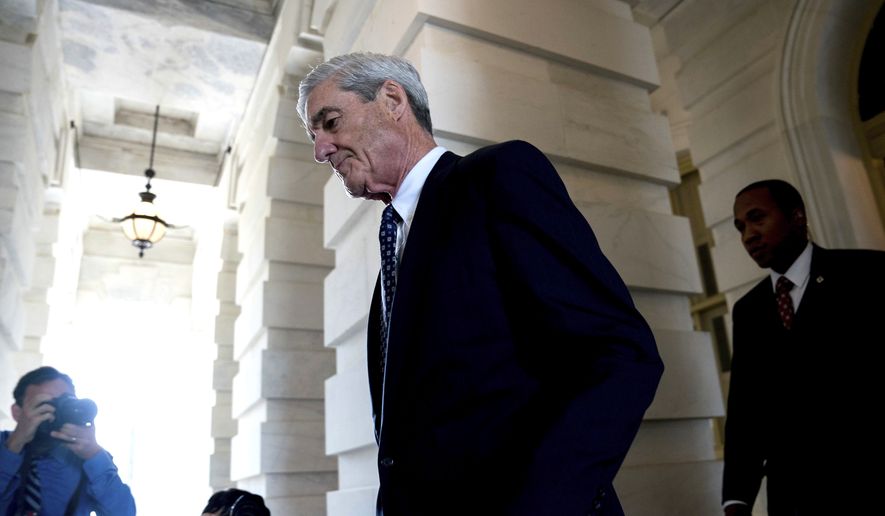Criminal charges brought Friday against 13 Russians and a St. Petersburg-based internet agency mark the first in-depth public accounting of Russian operatives’ efforts to meddle in the 2016 U.S. election, challenging President Trump’s repeated skepticism.
A 37-page indictment brought by special counsel Robert Mueller says the interference was well-funded and well-organized and tested a number of potential vulnerabilities in the electoral system.
“This is a watershed moment,” said Bennett Gershman, who spent four years investigating judicial corruption with a New York special prosecutor. “This is the first corroboration we have of Russia’s involvement in our democracy in a big way.”
Andrew Leipold, a law professor at the University of Illinois who served as a consultant on special counsel Kenneth W. Starr’s Whitewater investigation, agreed. He said the indictments should end the debate over whether Russia interfered in the U.S. election.
“The most important thing about the indictments is that it moved the baseline of the Russian story from ’did anything happen’ to ’something did in fact happen,’” he said. “The whole story changes to ’Russia did it, and now what?’”
Now that the Department of Justice has acknowledged Russian interference, the next step is murky.
The indictment says the defendants stole identities from U.S. citizens to create a social media presence to “sow discord.” It is not known if these charges eventually will be linked to other accusations of Russian meddling, including the hacking of the Democratic National Committee’s emails.
“Russia had a number of strategies, and [the] social media aspect only came to light recently,” said Richard Painter, who served as White House ethics counsel under George W. Bush. “On the other side of things, I don’t see how the Mueller team is finished with anything. We know about some contacts between Russia and the Trump campaign that have been in the press for the past couple of months. Mueller has not reached any conclusion on that.”
Members of the Trump campaign interacted with Russians 19 times and possibly as many as 31, according to media reports. One of those meetings has generated scrutiny from Mr. Mueller. Mr. Trump’s former national security adviser, Michael Flynn, was charged in connection with Mr. Mueller’s investigation. In December, Flynn pleaded guilty to one charge of lying to the FBI about his contact with a Russian ambassador.
Another meeting that has garnered attention occurred in June 2016 at Trump Tower. Mr. Trump’s son Donald Jr., son-in-law Jared Kushner and campaign manager Paul Manafort met with Russian lawyer Natalia Veselnitskaya, who promised documents that would incriminate Hillary Clinton.
Deputy Attorney General Rod Rosenstein said Friday that the Russians tried to deceive Trump campaign officials but no Americans were accused of colluding with the Russians.
“There is no allegation that any American is a knowing participant,” Mr. Rosenstein said. “There is no allegation that the charge altered the outcome of the 2016 election.”
Analysts differ on whether the indictment will shed light on other charges of Russian interference.
“My guess is that arms are going to be twisted and cooperation is going to be forthcoming,” Mr. Gershman said. “Who knows where all of this will lead, but there is a lot here to give people a clearer picture.”
Mr. Painter said the social media operation was likely one of several used by Russia to disrupt the election. He said even if the defendants are extradited to the U.S., which he sees as unlikely, it is doubtful they know much about other efforts.
“Russia had a big operation, and I’m not sure the social media people knew about the other operations,” he said.
As people began to ponder Mr. Mueller’s next move, the indictment gave little indication of where he could move next, Mr. Leipold said.
“Is this the first shoe or the last shoe?” he said. “I didn’t see anything in the indictment that said there is more to this story legally, but is Mueller done? It’s really hard to say.”
• Jeff Mordock can be reached at jmordock@washingtontimes.com.




Please read our comment policy before commenting.